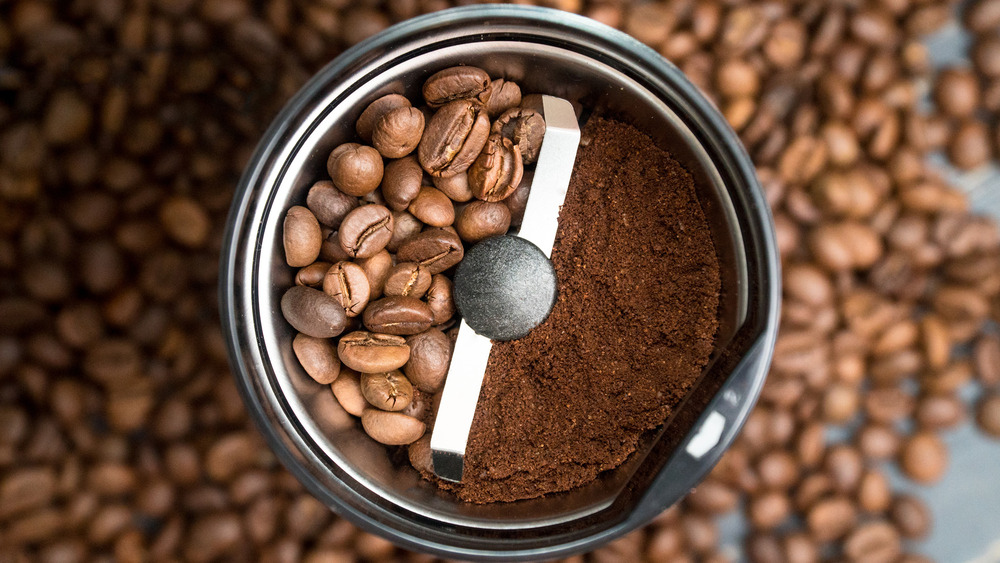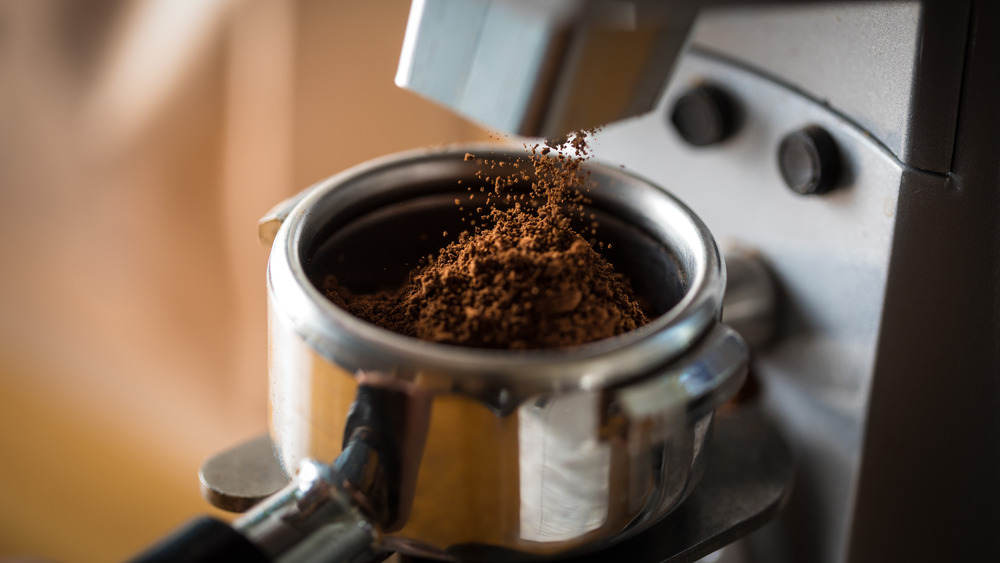Using A Coffee Grinder Is More Important Than You Think
With most roasters, cafés and coffee sellers readily willing to grind their coffee beans to the size of your choice for no additional cost, buying a coffee grinder may seem like a wasteful investment. However, if you depend on several cups of top-notch coffee to help you get through the day, and usually make coffee at home, investing in a coffee grinder may actually be sound advice.
As Refreshment Systems reports, many consider using a good coffee grinder to be far more important than owning a swanky coffee machine. In an interview with Eat This, Not That!, Jordan Karcher, founder of Grounds & Hounds Coffee Co., explains that coffee oxidizes when it comes in contact with oxygen, much like wine. You wouldn't go back to finish off an opened bottle of wine because it probably wouldn't taste as good as before, so don't do the same with your bag of beans. By buying pre-grounded coffee, Jordan says that "you're increasing the surface area of the coffee and greatly increasing the rate of oxidation, resulting in muted flavors and subdued aromatics."
He suggests that buying whole beans, a good coffee grinder, and waiting until the very last minute before grinding your coffee beans makes all the difference. Grinding your coffee beans right before you start brewing keeps them fresh and helps you taste all the flavors that your coffee has to offer.
Buying the right coffee grinder
Now that you know why using a coffee grinder leads to a better brew, the next most important step is choosing the right type of coffee grinder. There are mainly two kinds of coffee grinders, says Jones Brothers Coffee: the burr grinder and the bladed grinder. A burr grinder lets you choose the type of grind you want. This gives you the freedom to tweak your grind size according to the brewing equipment that you use. They work by crushing coffee beans between two serrated plates, allowing only grounds of a certain size to fall through. The result is a uniform and consistent grind.
A bladed grinder may be cheaper, but the lower price tag comes with its share of problems. Bladed grinders have no grind settings, giving you no control over the grind that you get, tend to produce an inconsistent grind, and can even burn your coffee beans. The New York Times vouches for a solid burr grinder for the consistency that it offers.
If you already own a coffee grinder but find that your coffee tastes weak and under-extracted anyway, Douglass Barrow, co-owner and roastmaster of Luna Gourmet Coffee & Tea Company, told Eat This, Not That! suggests changing the setting of your grinder to make a finer grind. If that doesn't do it, it may be time to change the burrs on your grinder.
Convinced? Serious Eats offers a helpful breakdown and ranking of coffee grinders.

